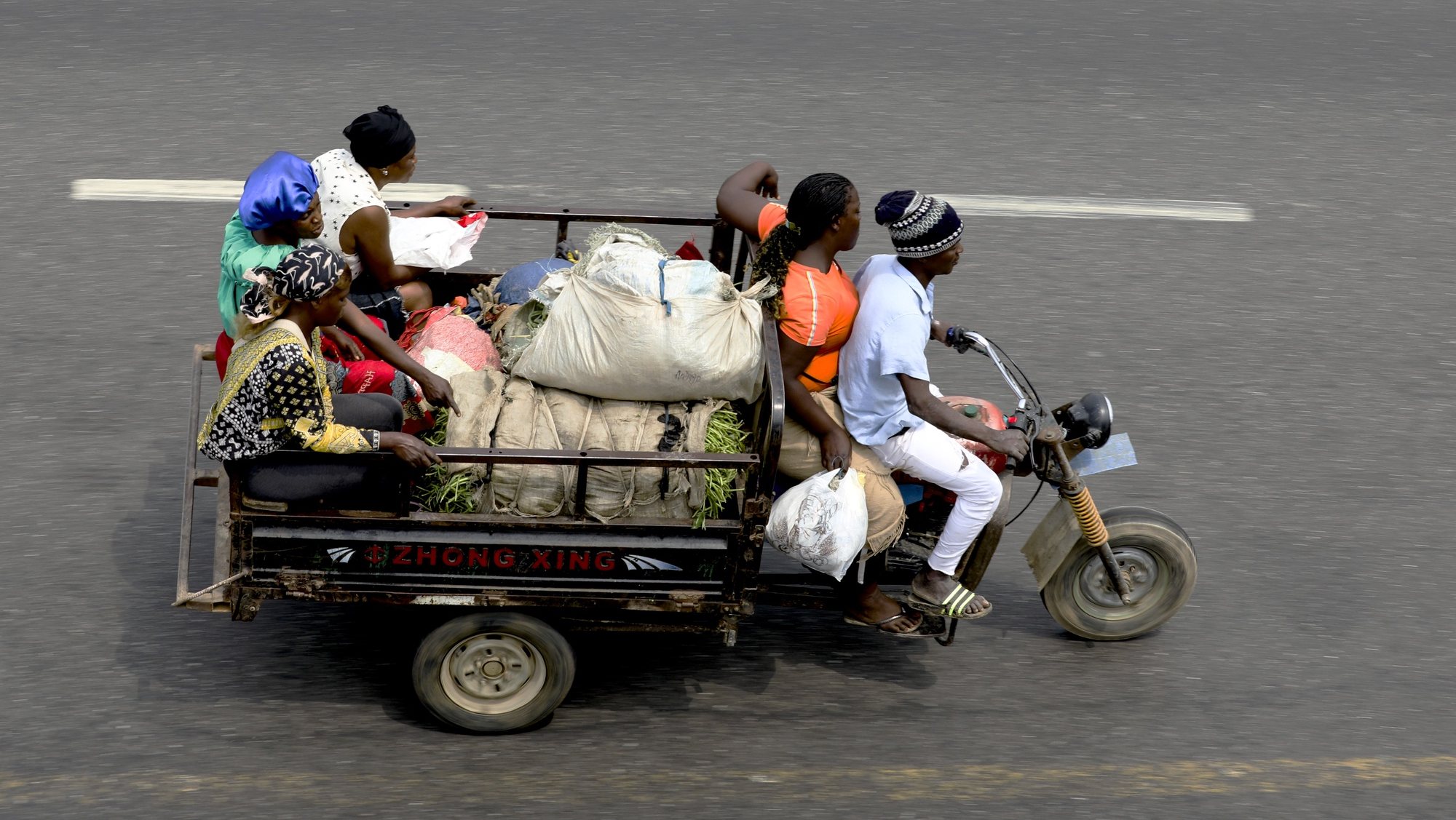The motorcycle taxis understand the measure and agree that it is necessary to reduce the accident rate on the road, but they ask the Government to work to guarantee them income. The motorcycle taxis complain about the pressure from the police.
The restrictions on the circulation of motorcycles on the main roads of Luanda will reduce the income of motorcycle taxi drivers, who resort to this activity to survive, but they will also reduce traffic accidents, admit users of tricycles and motorcycles.
The popular mototaxi service is present in the nine municipalities of the Angolan capital, where thousands of Motorcycle taxi drivers transport, from the early hours of each day, the largest number of passengers, inside or outside the towns, and do not go unnoticed on the main or secondary roads.
Heard by Lusa, the motorcycle taxi drivers, commonly known as “kupapatas”, recognized the inconvenience they cause in road mobility and the involvement in accidents, often fatal, this result, and considered that the measure of the Provincial Government of Luanda (GPL) announced on Tuesday contains advantages and disadvantages.
The reduction in road accidents is indicated as the main advantages, but those who have the mototaxi service as a “breadwinner” also fear seeing their income reduced as many also circulate on the main roads of the bustling Angolan capital.
“One part has an advantage and the other a disadvantage, because most motorcyclists also travel long distances, others leave Benfica for Cacuaco and vice versa,” motorcycle taxi driver Rufino Sapalo José, 38, told Lusa, suggesting that the LPG ban is “good”. “Because there have been many accidents.
The well-known coordinator of the biker stop in the well-known “Três Prédios” area, Capalanga neighborhood, Viana municipality, highlights, however, the “bad side” of this measure by the Luanda authorities.
“Because those (motorcycle taxi drivers) who travel along the (main) road is where they get their daily bread to take it to their children, which can make it very difficult for us,” lamented the motorcycle taxi driver, who has been on the road for 14 years. , also complaining about the lack of a single stop and the daily pressure from police officers.
At the “Três Prédios” stop, highly visible to anyone traveling on the Vía Expressa, in the Cacuaco-Viana direction, there is also the motorcycle taxi driver Almeida Paiva, 23, who recognized the involvement of motorcyclists in numerous accidents on the roads of Luanda. “Perhaps that is why they have banned us,” said the motorcycle taxi driver, who has been in business for eight years, pointing out that sometimes they need to use the main road to move between municipalities. “And we always need to drive on the main roads with our motorcycles,” said the motorcycle taxi driver.
The Provincial Government of Luanda prohibited the circulation of motorcycles on some of the main roads of the capital with the aim of improving circulation and reducing accidents, which totaled 768 in the first half of the year.
Accidents caused by mopeds, motorcycles, tricycles and quadricycles caused 134 deaths and 725 injuries, of which 368 were serious, according to data presented Tuesday by the head of the Traffic and Road Safety Department of Luanda province, Superintendent Simão Saul.
With a daily journey marked by difficulties, ranging from the state of the roads to the pressure of the police inspection, Celestino António, a motorcycle taxi driver for five years, also highlighted the advantages and disadvantages of the measure adopted by the Luanda authorities.
“Yes, in fact, there have been constant accidents with motorcyclists, many of us have been hit by trucks and therefore it is really difficult and complicated,” he said, arguing, however, that “they have to ride on the main road ”. ways to raise some values”.
The well-known “Brazilian” street, in the Caop area, also in Viana, one of the most populated municipalities in Luanda, is invaded daily by dozens of motorcycles, some with two wheels and others with three, that provide taxi services. , commanded mainly by young people.
There, saleswomen, passengers, motorcycle taxi drivers and the respective “lotadores” (passenger recruiters) meet in a considerable flood and in a constant coming and going of motorcycles.
Gelson Jerónimo Cristóvão, 21 years old, eight years of traveling, points out the lack of employment as the main reason for the hundreds of young people who join the mototaxi service, as a source of survivalreferring to the fact that the day has been one of “long and constant battle.”
“Here the police bother us a lot, all the time they only want money,” complained the young motorcycle taxi driver, who in statements to Lusa, aboard his tricycle, disapproved of the authorities’ new measure. “It is very negative (the measure), because we are in bad shape, we don’t have a job, we are in bad shape,” he shot.
Changing the tire of his tricycle, also on “Brazilian” street, we also found the motorcycle taxi driver Alexandre João Manuel, 31, who complained that they were working in the place under “police pressure”, at a stop that, According to him, there was “a lot of confusion”.
Regarding the traffic ban on the main roads of the Angolan capital, Alexandre, with ten years of experience, told Lusa that “The measure is really quite valid, because many colleagues, when they are on the move, do not respect the signs.” “We think it is a good measure, but we also ask the government for employment for young people,” she concluded.
Source: Observadora
